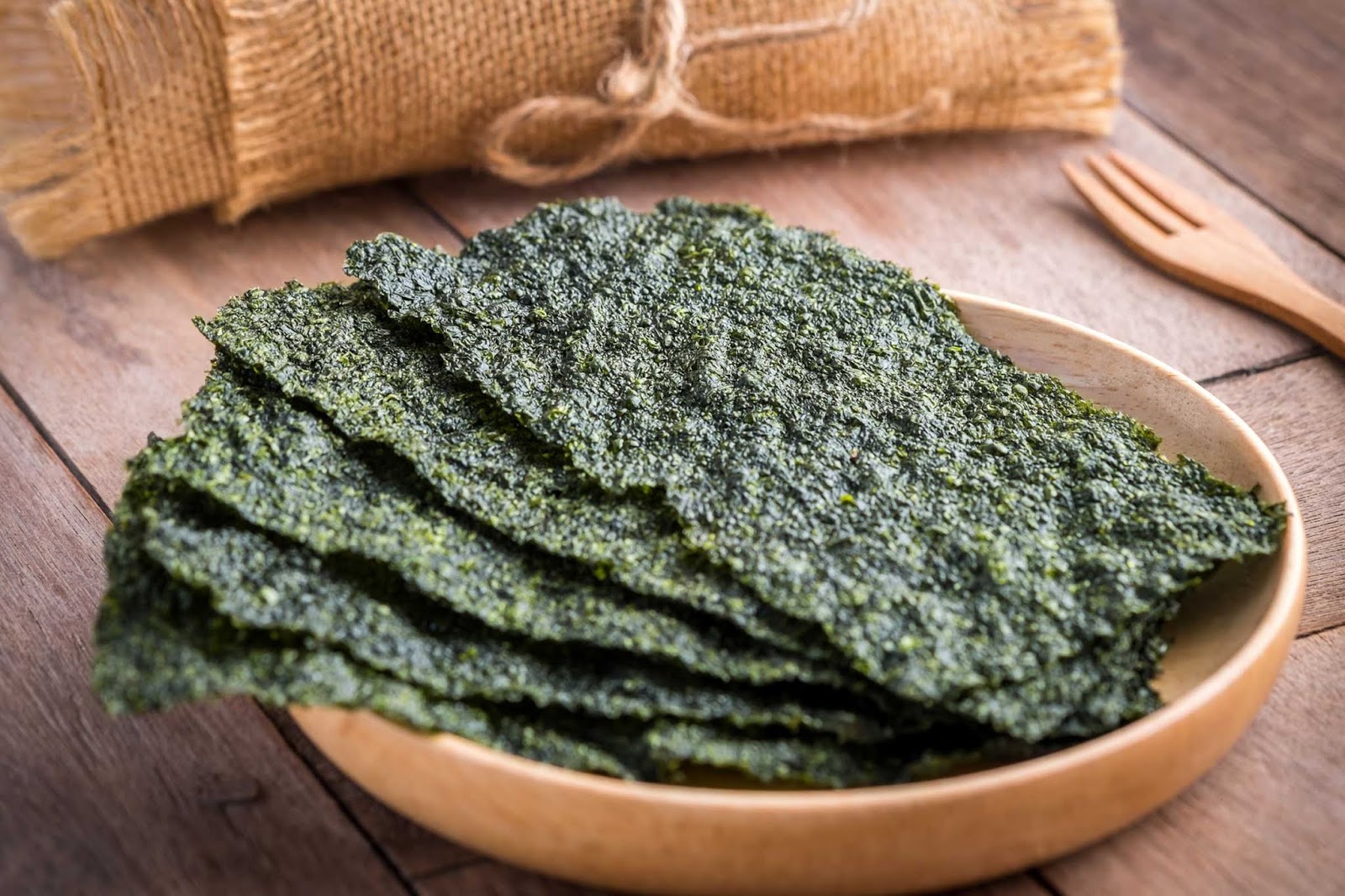When it comes to healthy snacks, roasted seaweed has gained popularity as a tasty and nutritious option. Many people wonder, "Is roasted seaweed good for you?" This article delves into the various health benefits, nutritional value, and potential concerns regarding this sea vegetable.
Roasted seaweed, often used as a topping in sushi or enjoyed as a standalone snack, is derived from various types of edible seaweed. It is typically seasoned with salt and sometimes other flavors. Beyond its delicious taste, it boasts a plethora of nutrients that contribute to overall well-being.
This article will provide an in-depth look at the health benefits of roasted seaweed, its nutritional profile, and how it compares to other snacks. Whether you're a health enthusiast or just curious about this trendy food, read on to discover if roasted seaweed is a worthy addition to your diet.
Table of Contents
- Nutritional Value of Roasted Seaweed
- Health Benefits of Roasted Seaweed
- Potential Concerns of Eating Roasted Seaweed
- How to Include Roasted Seaweed in Your Diet
- Conclusion
- Sources
Nutritional Value of Roasted Seaweed
Roasted seaweed is not only low in calories but also packed with essential nutrients. Here’s a breakdown of its nutritional value per 10 grams:
- Calories: 35
- Protein: 3 grams
- Fat: 0.5 grams
- Carbohydrates: 5 grams
- Fiber: 1 gram
- Sodium: 50-100 mg
- Vitamin A: 30% of the Daily Value (DV)
- Vitamin C: 10% of the DV
- Calcium: 5% of the DV
- Iron: 5% of the DV
Roasted seaweed is particularly rich in iodine, which is crucial for thyroid function. It also contains antioxidants and various vitamins and minerals that support overall health.
Health Benefits of Roasted Seaweed
1. Rich Source of Nutrients
One of the primary reasons roasted seaweed is considered a healthy snack is its impressive nutrient profile. It is rich in vitamins A, C, and K, which play vital roles in immune function, skin health, and blood clotting.
2. Supports Thyroid Function
Iodine is essential for the production of thyroid hormones, which regulate metabolism. Roasted seaweed is an excellent source of iodine, making it beneficial for individuals who may not get enough from other dietary sources.
3. Antioxidant Properties
The antioxidants found in roasted seaweed, such as flavonoids and carotenoids, help combat oxidative stress in the body. This can reduce the risk of chronic diseases and promote overall health.
4. Low-Calorie Snack
For those looking to manage their weight, roasted seaweed is a low-calorie snack option that can satisfy cravings without adding excessive calories. Its crunchiness provides a satisfying texture, making it a great alternative to chips.
Potential Concerns of Eating Roasted Seaweed
1. High Sodium Content
Many commercially available roasted seaweed snacks contain added salt, which can contribute to high sodium intake. Individuals with hypertension or those monitoring their salt intake should choose unsalted varieties or consume them in moderation.
2. Iodine Overconsumption
While iodine is essential for health, excessive intake can lead to thyroid dysfunction. It’s important to balance seaweed consumption with other dietary sources of iodine.
3. Allergies
Some individuals may have allergies to seaweed or shellfish. It’s crucial to be aware of any allergies before incorporating roasted seaweed into your diet.
4. Heavy Metal Contamination
Seaweed can absorb heavy metals from the ocean, and some products may contain high levels of contaminants. Choosing high-quality, reputable brands can help mitigate this risk.
How to Include Roasted Seaweed in Your Diet
Incorporating roasted seaweed into your diet can be easy and delicious. Here are some ideas:
- Snack Time: Enjoy it on its own as a crunchy snack.
- Sushi Rolls: Use roasted seaweed as a wrap for sushi or rice rolls.
- Salads: Add crumbled roasted seaweed to salads for extra flavor and nutrients.
- Soups: Incorporate it into soups for added texture and flavor.
Conclusion
In conclusion, roasted seaweed can be a nutritious and flavorful addition to a balanced diet. Its rich nutrient profile offers numerous health benefits, from supporting thyroid function to providing antioxidants. However, it’s essential to consume it mindfully, considering potential concerns such as sodium content and heavy metal contamination.
If you’re looking for a healthy snack or a versatile ingredient for your meals, consider giving roasted seaweed a try. Share your thoughts or experiences with roasted seaweed in the comments below, and don’t forget to explore other articles on our site for more health tips!
Sources
1. National Institutes of Health, Office of Dietary Supplements - Iodine
2. Healthline - Top 10 Health Benefits of Seaweed
3. USDA FoodData Central - Seaweed, roasted, dried
4. Mayo Clinic - Sodium: How to Limit Your Intake


